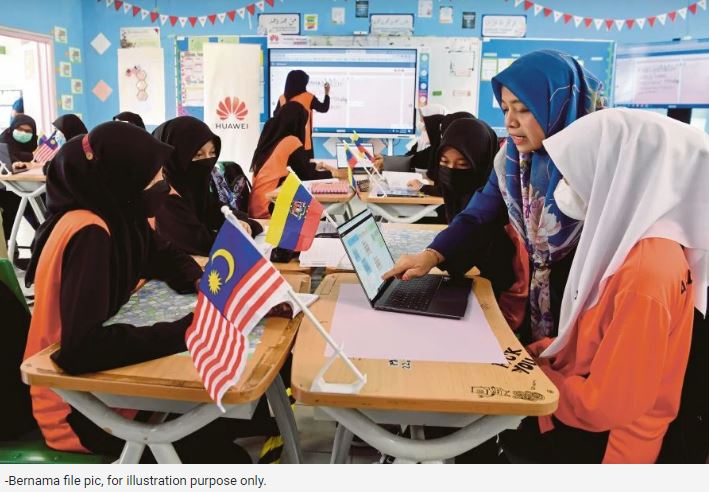Education ministries must act in sync for a higher purpose
Emeritus Professor Tan Sri Dato' Dzulkifli Abdul Razak
Opinion - New Straits Times
February 21, 2023
Education is making the headlines yet again. It recreates yet another distraction from the much-needed transformation that the sector has to endure.
Most unfortunately, the claims made did not go down well, knowing full well that the Malaysian education ecosystem has much to catch up to even after more than six decades of Merdeka.
For example, recently the Education Ministry identified "830 run down schools in need of redevelopment and rebuilding". This, perhaps, is the tip of the iceberg since former ministers did make similar comments but did little to improve matters.
Reportedly, a teacher died after a termite-infested floorboard gave way. And, who knows what will happen next. Yet, slogans like "Sekolahku Sejahtera" were senselessly promoted.
Although there is no new slogan as yet the obsolete ones still linger! So, too, the attitude that goes with it.
In fact, the larger conversation is how to exterminate most of these so that the firm foundation of the country, envisaged by the founding fathers notably Tun Abdul Razak through the Razak Report (1956), can take root.
Next, the National Education Philosophy of 1988, later slightly revised to Falsafah Pendidikan Kebangsaan (FPK) of 1996. Interestingly, these were initiatives taken by the then minister of education, who is the current prime minister.
It stands to reason, therefore, that the FPK should be firmed up as the building block of Malaysia Madani, not only because of the common authorship, but more so because of the continuum of ideas between the two.
Many of the arguments put forward by the prime minister in "SCRIPT - For a better Malaysia" could be regarded as extensions of the salient points in FPK. At least three cases could be cited.
First, the importance of character, values and virtues in education. In FPK, this was referred to as kesejahteraan diri where character-building dominates based on local values and virtues.
Secondly, it at once becomes human-centric and God-conscious (which mirrors the first principle of the Rukun Negara) in a civil way.
The third point resonates with the PM's call to be wary of neo-liberalism and its slant towards "homo economicus" (humans solely as an economic being).
This economic-centricity runs counter to the notion of Malaysia Madani that advocates "sustainability" as one of its primary pillars. In other words, the cornerstone of Malaysia Madani is interdependency between ecological, social and economic forces in realising environmental ethics, social equity and economic justice simultaneously.
In line with FPK, the nurturing of a balanced and harmonious persons who subscribe to Sejahtera, the other Malaysia Madani pillar.
There are several others, but suffice to say that the Malaysian education system if properly understood and implemented is uniquely contextualised with the higher purpose of education, yet grounded in the global reality and demands, superceding the market domination.
The FPK is so designed that humanitarian values are fully appreciated and realised. It is not about the commoditisation of education in the way it is currently processed in a factory-like manner.
For this the Education Ministry and Higher Education Ministry must be well-aligned in a continuum, holistic and integrated manner as defined in the FPK. The latter seems to be in sync, meaning that the former must quickly follow suit for the purposes of Malaysia Madani.
* The writer, an NST columnist for more than 20 years, is International Islamic University Malaysia rector

